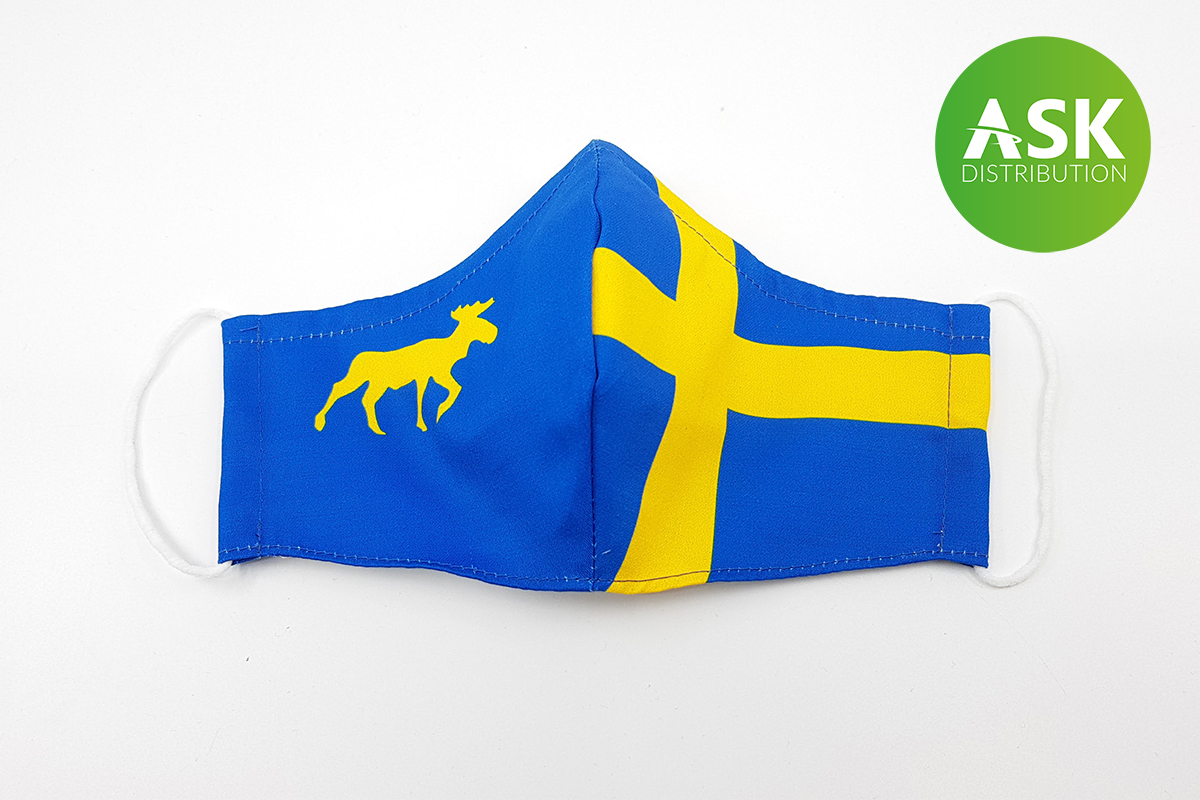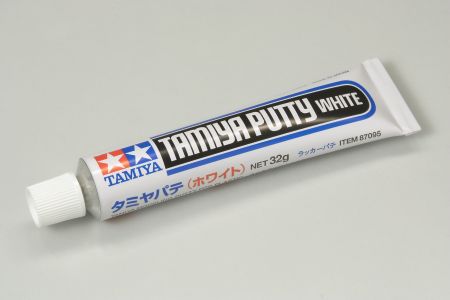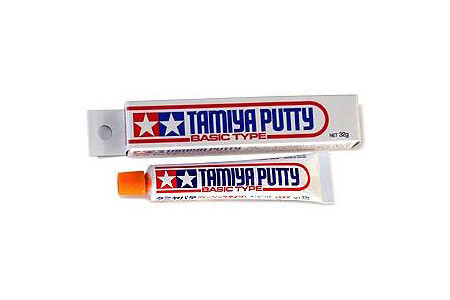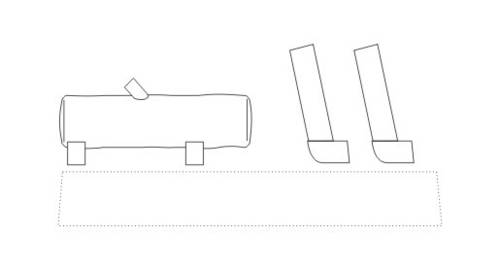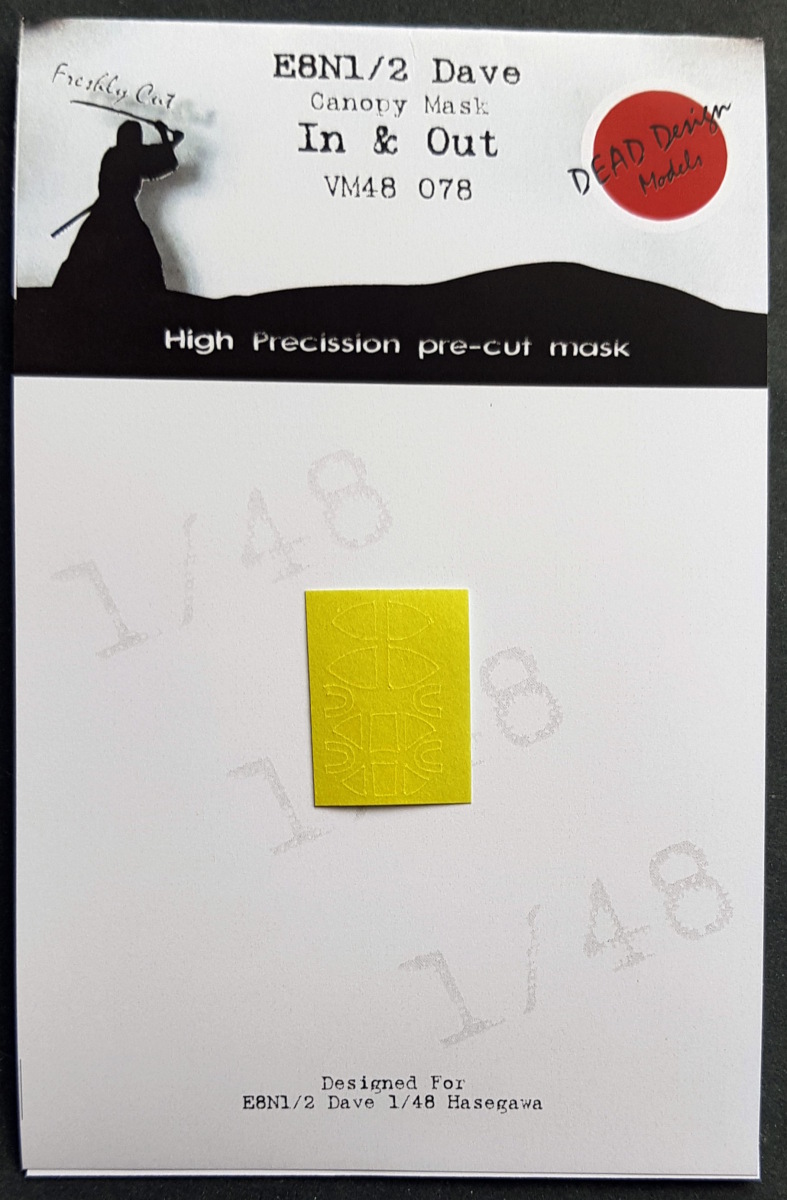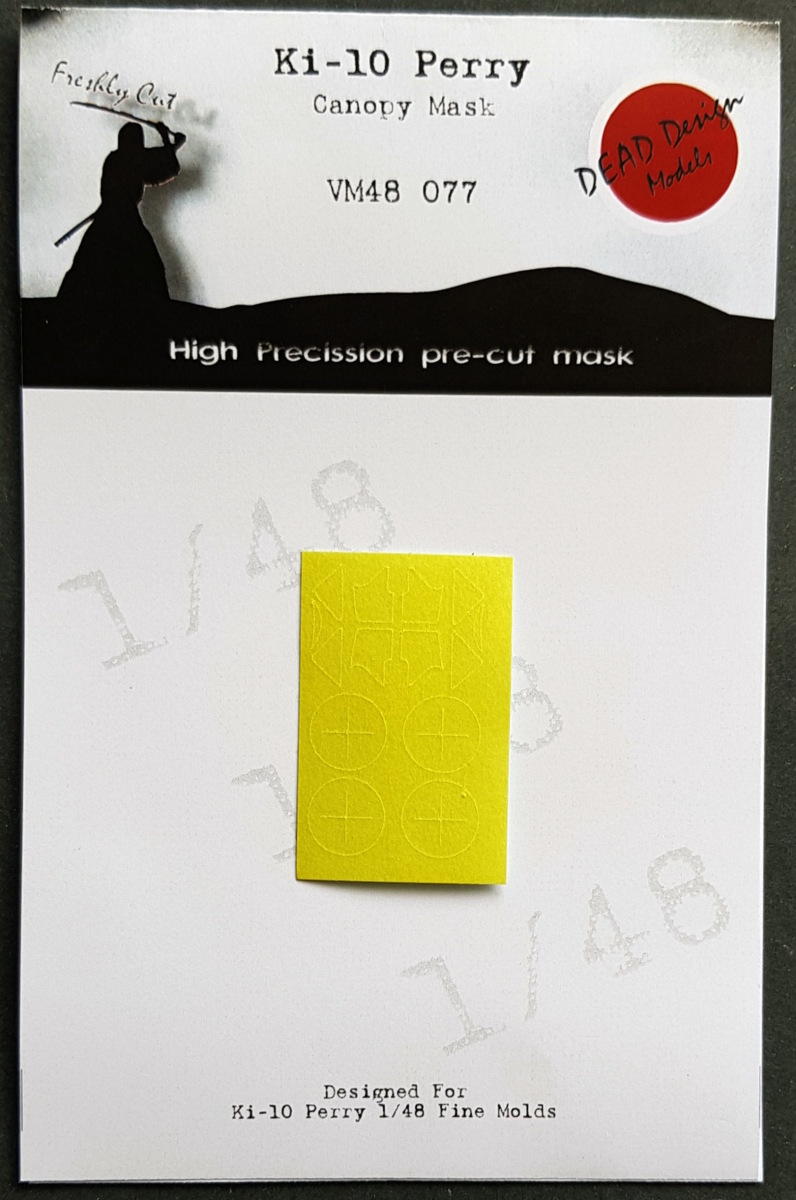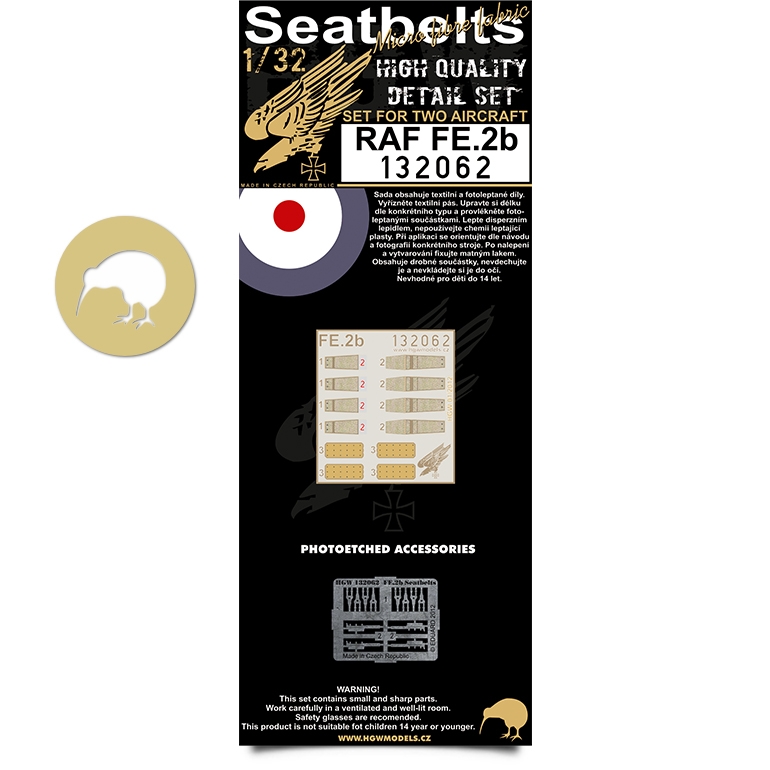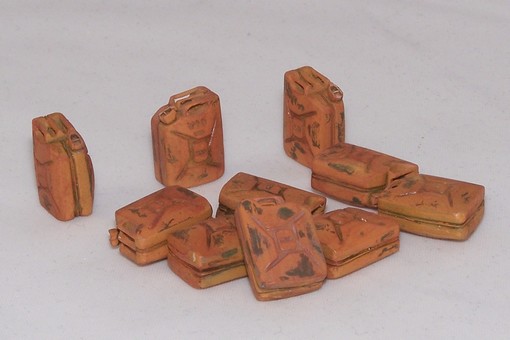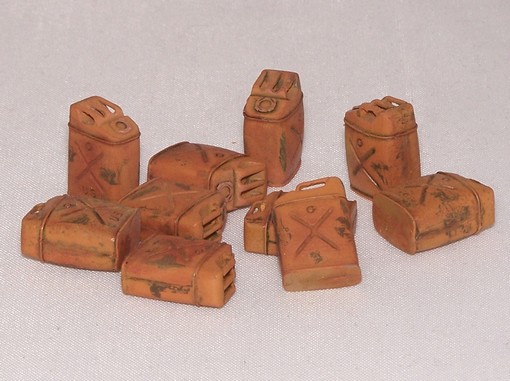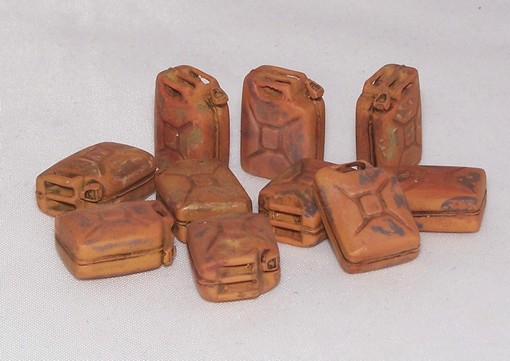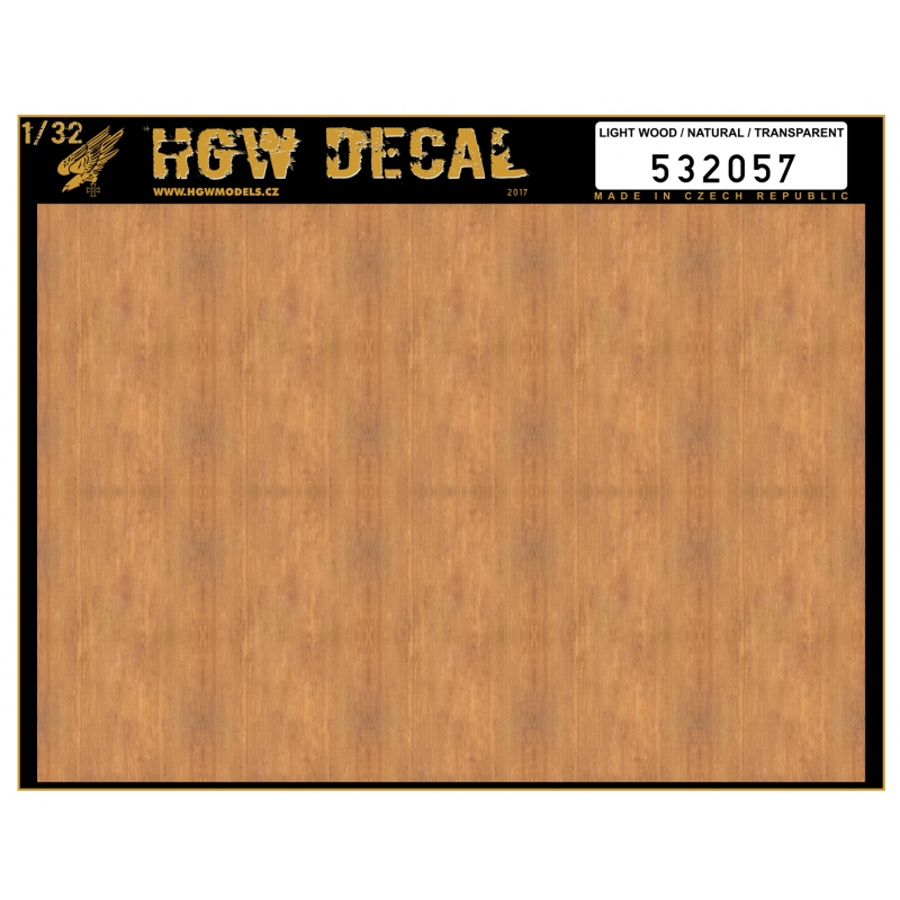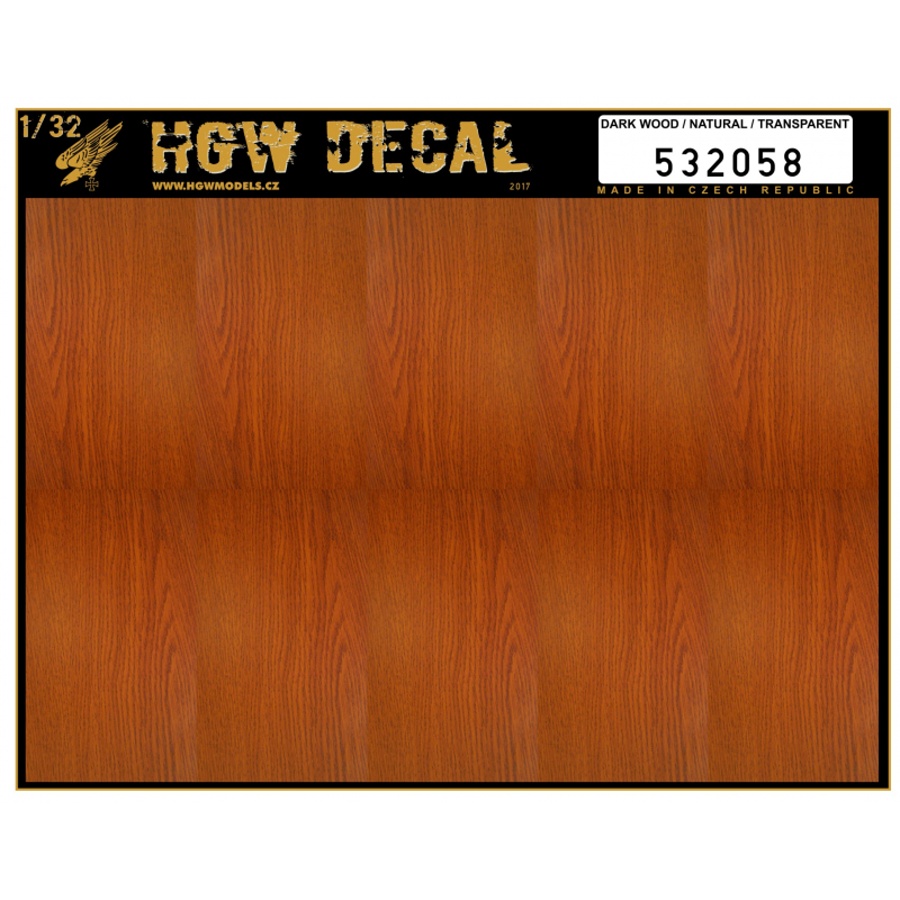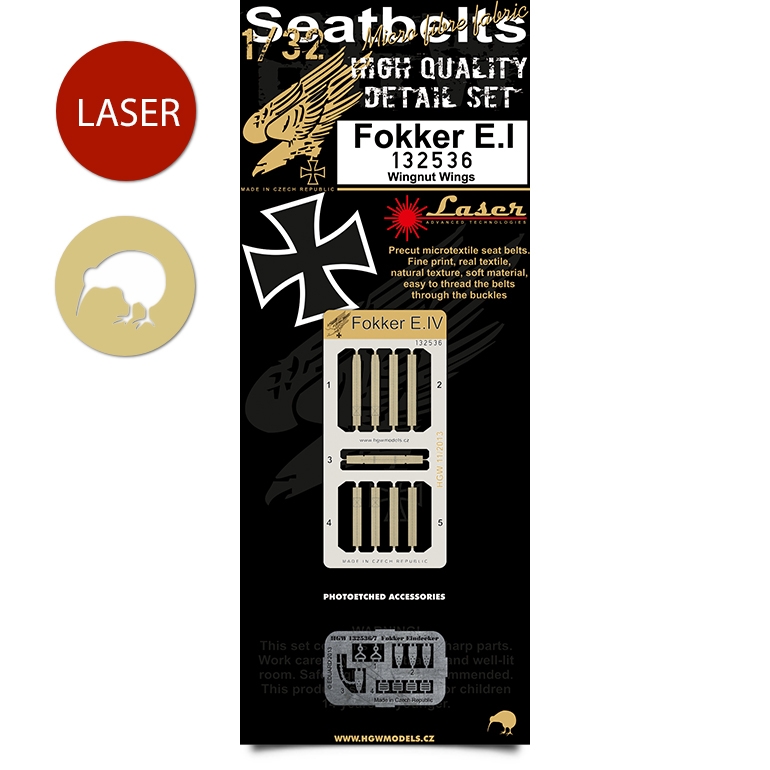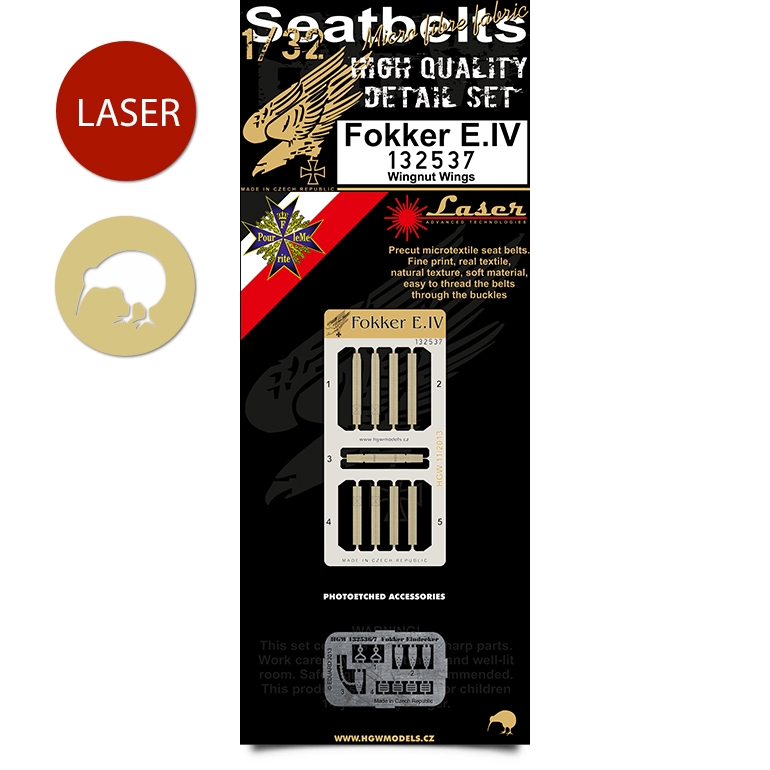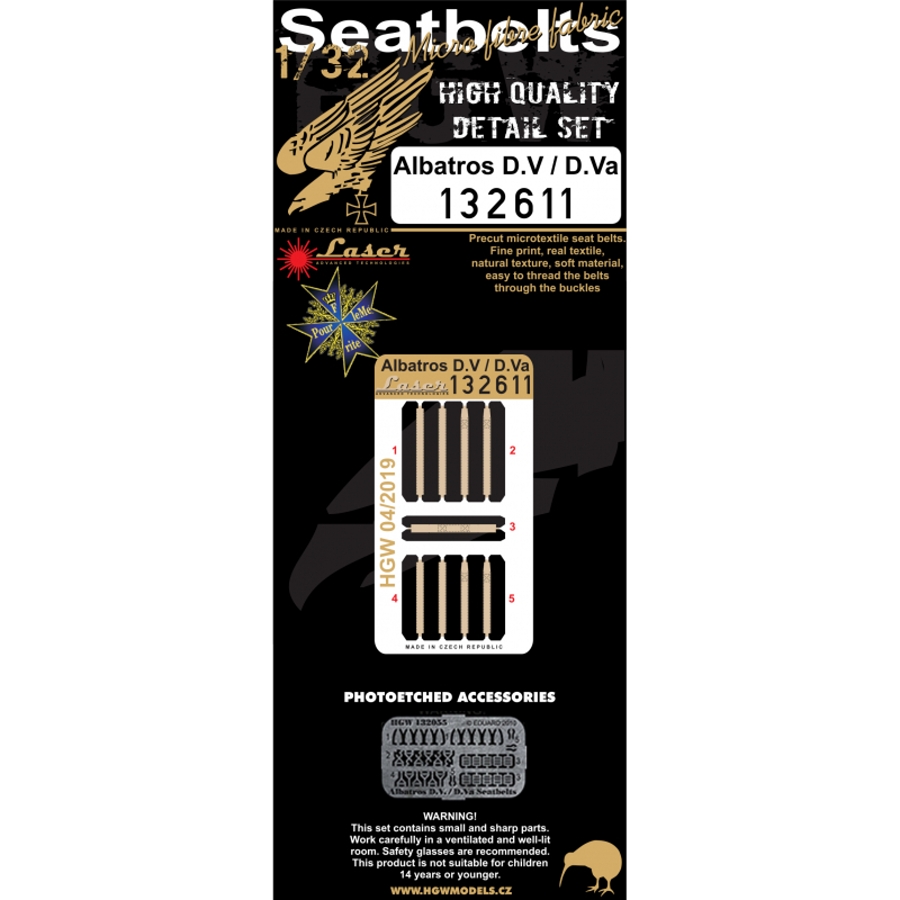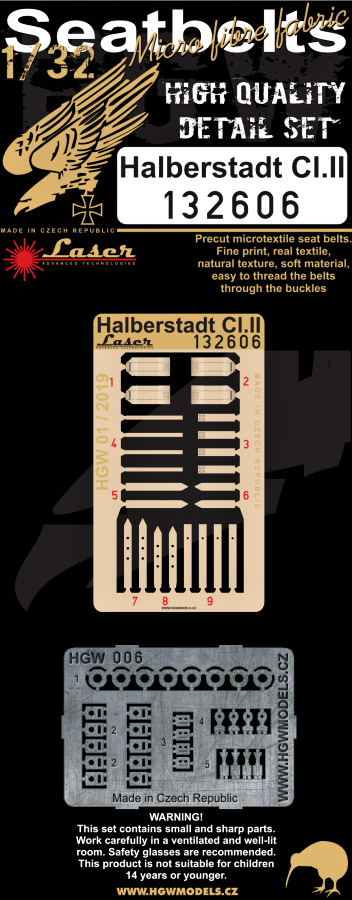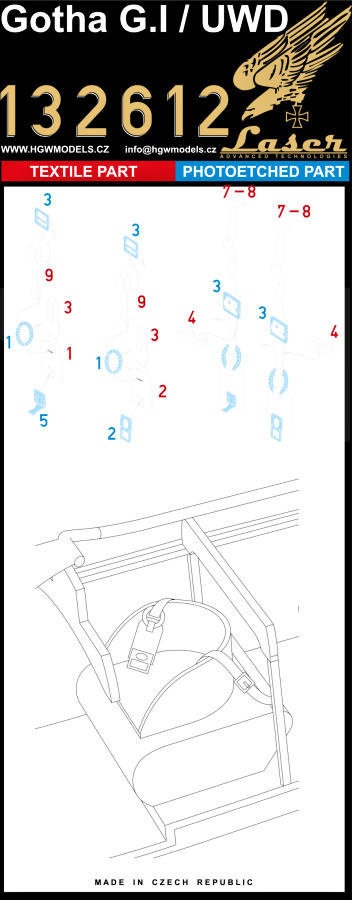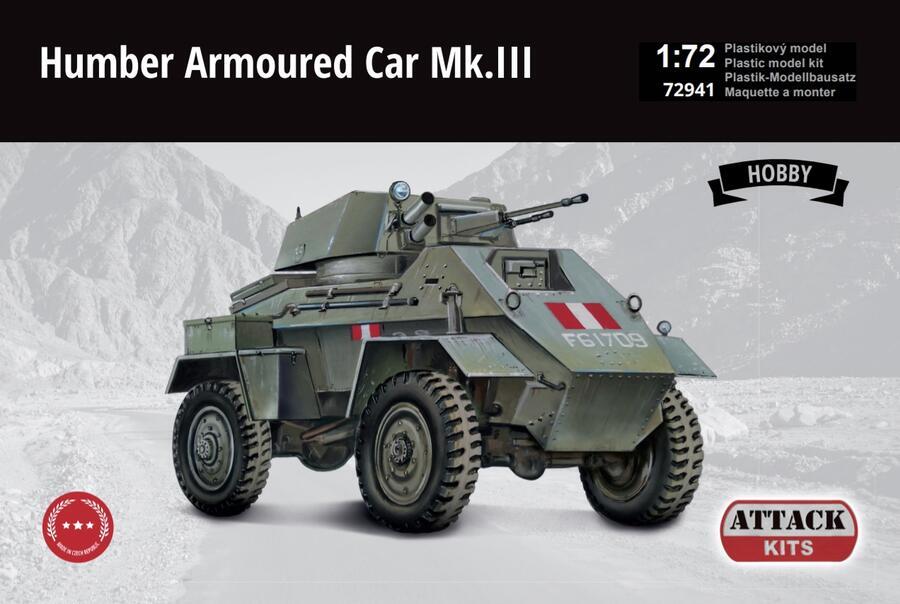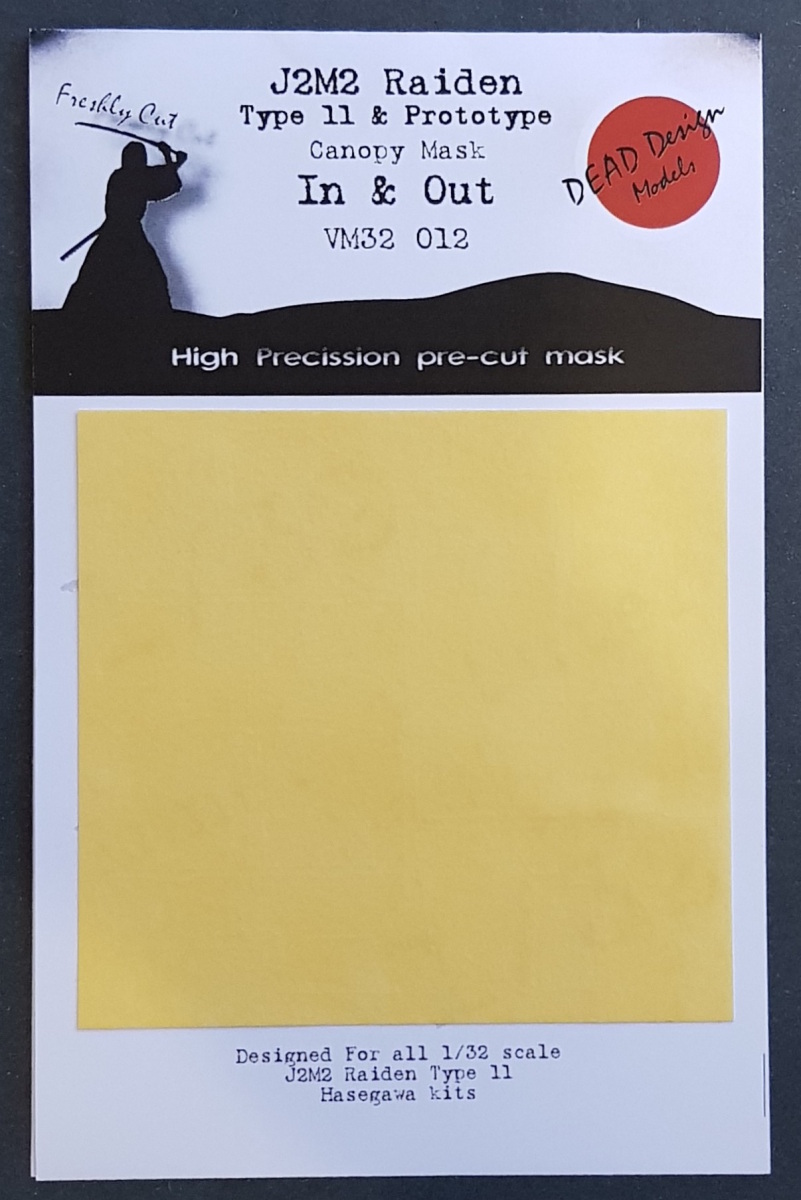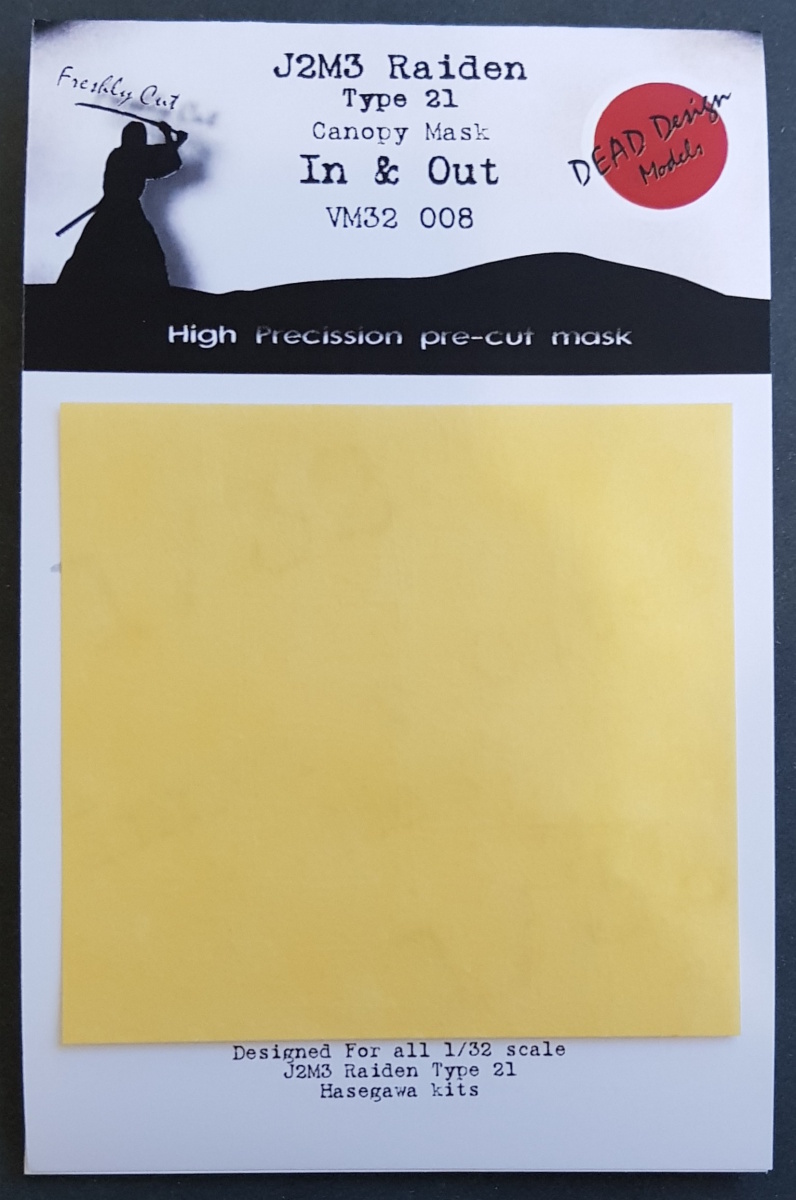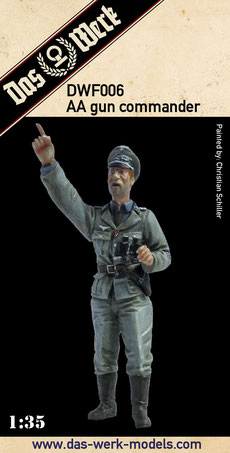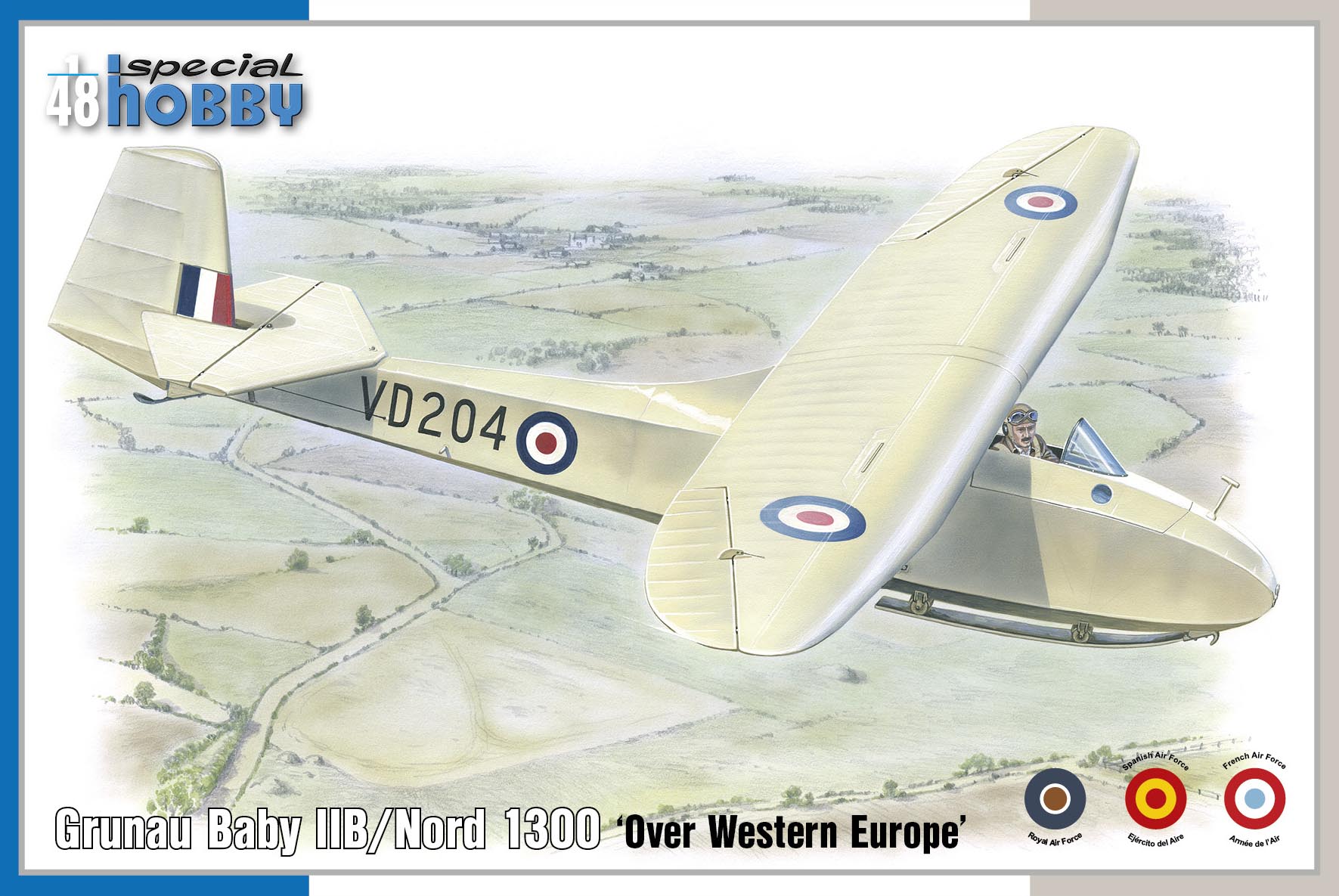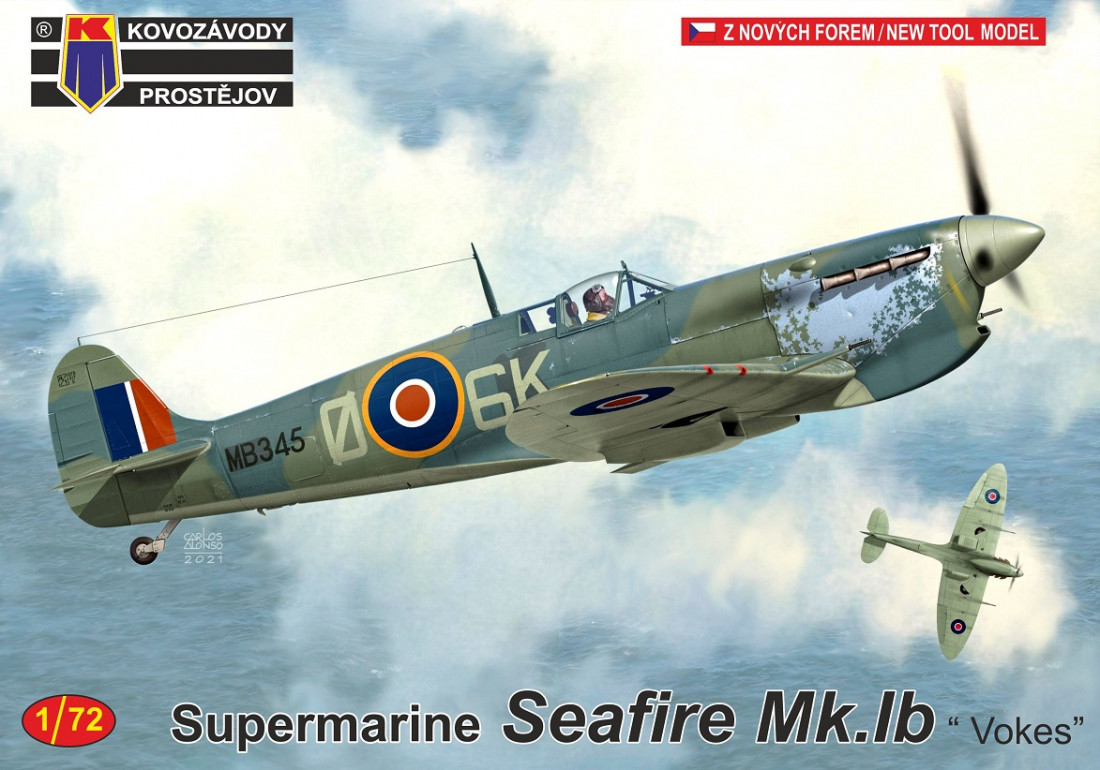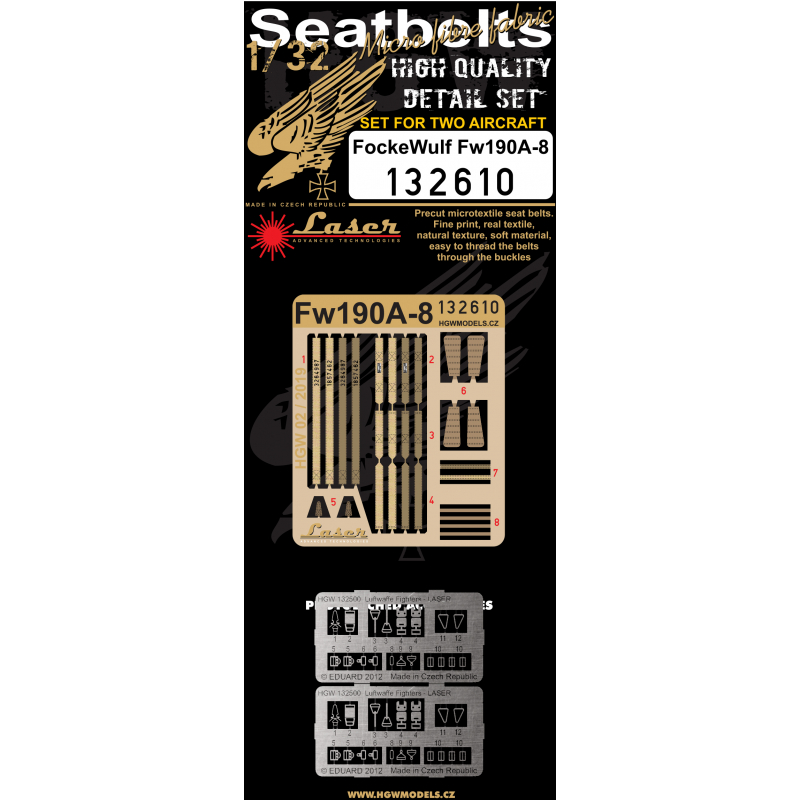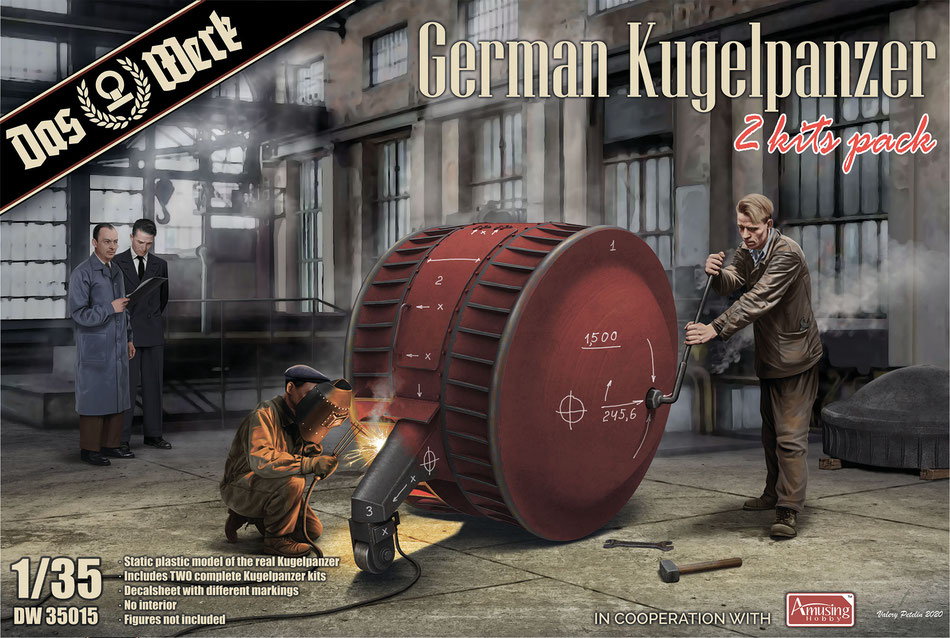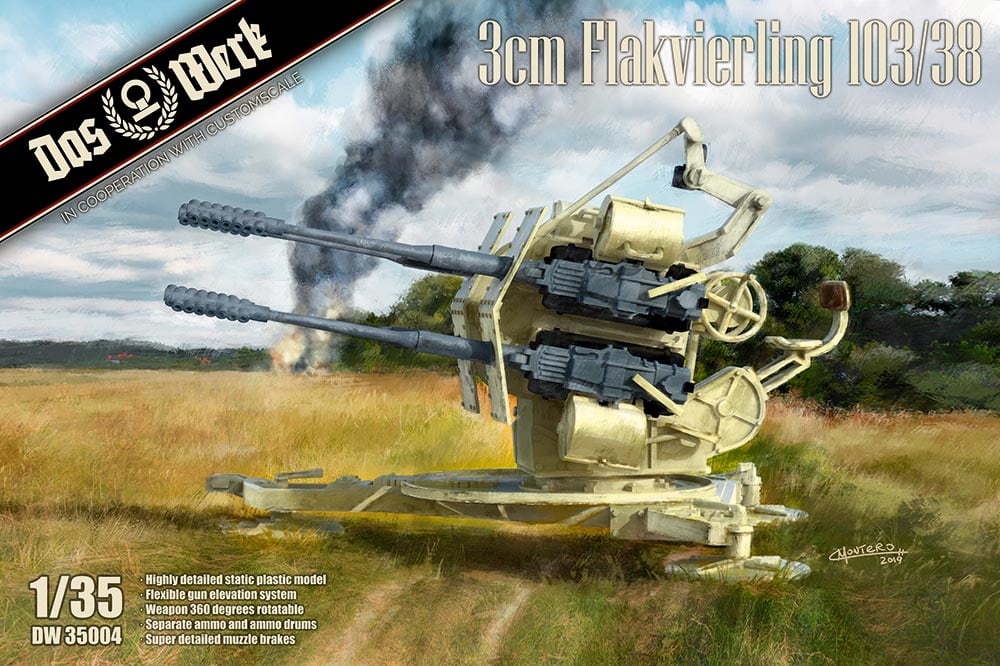Modely
Celkem 152 produktů
Tamiya Paint Retarder (Lacquer). This retarder is perfect for use when brush-painting lacquer paints. It slows the drying process, helping eliminate surface imperfections from brush bristles, giving a smooth and lustrous finish. Can be used up to a ratio of 1:10 (retarder:paint) when mixing. Contents: 40ml.
Rouška s kapsou Švédsko. Roušky nabízíme pro kolegy, kteří nemají možnost, nebo čas vyrábět si roušky sami. Roušky šije malá oděvní firma z liberecka, která díky šití roušek může nadále zajistit práci svým zaměstnankyním, ženám a manželkám přátel a kolegů. Roušky nabízíme jako podporu malého podnikání a neslouží k vlastnímu obohacení.
Tamiya Putty (White). This new Tamiya Putty is perfect for filling gaps, repairing holes, or creating surface texture. It can be dissolved with separately available Tamiya Lacquer Thinner for even more varieties of application. White color means it is a better base for lighter paint colors. 32g of putty comes in aluminum tube.
Tamiya Basic File Set (Smooth Double-Cut) - Sada oboustraných pilníků. This set of 3 files includes flat, hemispherical and round files for use in the construction of plastic models, Mini 4WD models, and even for metal-working. The files are double-cut and their smooth cut provides an equally-smooth finish on the material being worked. A special coating is applied to the grip to make it extremely comfortable to hold.
1/32 RAF FE.2b - Fabric Seat Belts - 2 sets Wingnut Wings. Textile seat belts designed for aircraft RAF FE.2b by Wingnut Wings. Belts are made from real microfibre and in combination with included photo etched buckles they look highly realistic. This product is available in 1/32 scale. HGW models SEATBELTS in 1:32 scale - this set is designed for Wingnut Wings kits textile sheeting, metallic buckles it is possible to make seat belts fully functional - un/buckle, un/fasten them made by special micro-textile foil set contains seat belts for 2 single-seater aeroplanes textile parts are prepared to using filters - it leads to darkening shades - and these are also waterproofedand resistant to normal nonaggresive modeller preparations photo-etched parts were developed in cooperation with Eduard company INSTRUCTIONS This set contains printed and photoetched parts. Choose appropriate shade of belt and trim on dotted line using very sharp knife. Trim to required length according to the type of seatbelt. Using fingers munch into little ball. Flatten out and thread through photoetched parts. Glue using white glue, do not use chemical glue that eches plastic. When applying, look at photos of cockpit of individual machines. After glued and shaped, paint with matt varnish.
1/32 RAF FE.2b - Fabric Seat Belts - 2 sets Wingnut Wings. Textile seat belts designed for aircraft RAF FE.2b by Wingnut Wings. Belts are made from real microfibre and in combination with included photo etched buckles they look highly realistic. This product is available in 1/32 scale. HGW models SEATBELTS in 1:32 scale - this set is designed for Wingnut Wings kits textile sheeting, metallic buckles it is possible to make seat belts fully functional - un/buckle, un/fasten them made by special micro-textile foil set contains seat belts for 2 single-seater aeroplanes textile parts are prepared to using filters - it leads to darkening shades - and these are also waterproofedand resistant to normal nonaggresive modeller preparations photo-etched parts were developed in cooperation with Eduard company INSTRUCTIONS This set contains printed and photoetched parts. Choose appropriate shade of belt and trim on dotted line using very sharp knife. Trim to required length according to the type of seatbelt. Using fingers munch into little ball. Flatten out and thread through photoetched parts. Glue using white glue, do not use chemical glue that eches plastic. When applying, look at photos of cockpit of individual machines. After glued and shaped, paint with matt varnish.
Tamiya Metal Primer Spray for Undercoating Metal Parts - 100 ml. Aluminum, photo-etched, die cast and pressed metal parts increase the realism and strength of plastic models. This clear spray primer for treating metallic parts does not damage plastic, and applied as an undercoat, it will prevent paint from peeling off of metal parts.contents: 100ml.
1/32 Light wood - Transparent - Decals Wood Grain - transparent no grid sheet: A5. A5 sheet This type is transparent, so it is possible, through base colour, to regulate final shade of the decal. Wooden structure is equal to 1/32 scale. INSTRUCTIONS Pasted/fixed/glued, puttied and polished model paint by base white (it is suitable to polish also this coloured layer before applying wooden decals). The decals are transparent, so it is necessary to apply base colour. It is possibe to mark off single panels by using different shades of base colour (white, of white, yellow). Then cut required shape of panel (with 2 mm overlap) and apply as same as ordinary decal (use Mr. Mark Setter, Mr. Mark Softer). After these processes cut protruded wooden decal with very sharp knife. By this technique it is possible to create very believable imitation of the wooden surface without skill in using of oil paints.
1/32 Dark wood - Transparent - Decals Wood Grain - transparent no grid sheet: A5. A5 sheet This type is transparent, so it is possible, through base colour, to regulate final shade of the decal. Wooden structure is equal to 1/32 scale. INSTRUCTIONS Pasted/fixed/glued, puttied and polished model paint by base white (it is suitable to polish also this coloured layer before applying wooden decals). The decals are transparent, so it is necessary to apply base colour. It is possibe to mark off single panels by using different shades of base colour (white, of white, yellow). Then cut required shape of panel (with 2 mm overlap) and apply as same as ordinary decal (use Mr. Mark Setter, Mr. Mark Softer). After these processes cut protruded wooden decal with very sharp knife. By this technique it is possible to create very believable imitation of the wooden surface without skill in using of oil paints.
1/32 Dark wood - Transparent - Decals Wood Grain - transparent no grid sheet: A5. A5 sheet This type is transparent, so it is possible, through base colour, to regulate final shade of the decal. Wooden structure is equal to 1/32 scale. INSTRUCTIONS Pasted/fixed/glued, puttied and polished model paint by base white (it is suitable to polish also this coloured layer before applying wooden decals). The decals are transparent, so it is necessary to apply base colour. It is possibe to mark off single panels by using different shades of base colour (white, of white, yellow). Then cut required shape of panel (with 2 mm overlap) and apply as same as ordinary decal (use Mr. Mark Setter, Mr. Mark Softer). After these processes cut protruded wooden decal with very sharp knife. By this technique it is possible to create very believable imitation of the wooden surface without skill in using of oil paints.
1/32 Light wood - Transparent - Decals Wood Grain - transparent no grid sheet: A5. A5 sheet This type is transparent, so it is possible, through base colour, to regulate final shade of the decal. Wooden structure is equal to 1/32 scale. INSTRUCTIONS Pasted/fixed/glued, puttied and polished model paint by base white (it is suitable to polish also this coloured layer before applying wooden decals). The decals are transparent, so it is necessary to apply base colour. It is possibe to mark off single panels by using different shades of base colour (white, of white, yellow). Then cut required shape of panel (with 2 mm overlap) and apply as same as ordinary decal (use Mr. Mark Setter, Mr. Mark Softer). After these processes cut protruded wooden decal with very sharp knife. By this technique it is possible to create very believable imitation of the wooden surface without skill in using of oil paints.
1/32 Fokker E.I - Fabric Seat Belts - pre-cut (laser) Wingnut Wings. Accessory designed for vintage model aircraft by Wingnut Wings. Seat belts from HGW Models are laser-cut so it is easy-to-use product. Set contains micro fabric belts and photo etched buckles suitable for large scale planes in 1/32 scale. contains micro-fabric and photo-etched highly detailed parts designed for great Fokker E.IV by Wingnut Wings belts are fully functional - modeler can leave them un/fastened made from printed micro-fabric material which behaves like a piece of rag textile parts are prepared for using filters and other agents (they are waterproof and resistant to common nonaggresive modeling preparations photo-etched parts are developed in cooperation with Eduard company
1/32 Fokker E.IV - Fabric Seat Belts - pre-cut (laser) Wingnut Wings. Accessory designed for vintage model aircraft by Wingnut Wings. Seat belts from HGW Models are laser-cut so it is easy-to-use product. Set contains micro fabric belts and photo etched buckles suitable for large scale planes in 1/32 scale. contains micro-fabric and photo-etched highly detailed parts designed for great Fokker E.IV by Wingnut Wings belts are fully functional - modeler can leave them un/fastened made from printed micro-fabric material which behaves like a piece of rag textile parts are prepared for using filters and other agents (they are waterproof and resistant to common nonaggresive modeling preparations photo-etched parts are developed in cooperation with Eduard company
1/32 Fokker E.IV - Fabric Seat Belts - pre-cut (laser) Wingnut Wings. Accessory designed for vintage model aircraft by Wingnut Wings. Seat belts from HGW Models are laser-cut so it is easy-to-use product. Set contains micro fabric belts and photo etched buckles suitable for large scale planes in 1/32 scale. contains micro-fabric and photo-etched highly detailed parts designed for great Fokker E.IV by Wingnut Wings belts are fully functional - modeler can leave them un/fastened made from printed micro-fabric material which behaves like a piece of rag textile parts are prepared for using filters and other agents (they are waterproof and resistant to common nonaggresive modeling preparations photo-etched parts are developed in cooperation with Eduard company
1/32 Fokker E.I - Fabric Seat Belts - pre-cut (laser) Wingnut Wings. Accessory designed for vintage model aircraft by Wingnut Wings. Seat belts from HGW Models are laser-cut so it is easy-to-use product. Set contains micro fabric belts and photo etched buckles suitable for large scale planes in 1/32 scale. contains micro-fabric and photo-etched highly detailed parts designed for great Fokker E.IV by Wingnut Wings belts are fully functional - modeler can leave them un/fastened made from printed micro-fabric material which behaves like a piece of rag textile parts are prepared for using filters and other agents (they are waterproof and resistant to common nonaggresive modeling preparations photo-etched parts are developed in cooperation with Eduard company
1/32 Albatros D.V / D.Va - Fabric Seat Belts - pre-cut (laser) Wingnut Wings. Textile seat belts designed for aircraft Albatros D.V / D.Va by Wingnut Wings. Belts are made from real microfibre and in combination with included photo etched buckles they look highly realistic. This product is available in 1/32 scale. HGW models SEATBELTS in 1:32 scale - this set is designed for Wingnut Wings kits textile sheeting, metallic buckles it is possible to make seat belts fully functional - un/buckle, un/fasten them made by special micro-textile foil set contains seat belts for 2 single-seater aeroplanes textile parts are prepared to using filters - it leads to darkening shades - and these are also waterproofedand resistant to normal nonaggresive modeller preparations photo-etched parts were developed in cooperation with Eduard company INSTRUCTIONS This set contains printed and photoetched parts. Choose appropriate shade of belt and trim on dotted line using very sharp knife. Trim to required length according to the type of seatbelt. Using fingers munch into little ball. Flatten out and thread through photoetched parts. Glue using white glue, do not use chemical glue that eches plastic. When applying, look at photos of cockpit of individual machines. After glued and shaped, paint with matt varnish.
1/32 Halberstadt CI.II - Fabric Seat Belts - pre-cut (laser). Accessory designed for vintage model aircraft by Wingnut Wings. Seat belts from HGW Models are laser-cut so it is easy-to-use product. Set contains micro fabric belts and photo etched buckles suitable for large scale planes in 1/32 scale.
1/32 Halberstadt CI.II - Fabric Seat Belts - pre-cut (laser). Accessory designed for vintage model aircraft by Wingnut Wings. Seat belts from HGW Models are laser-cut so it is easy-to-use product. Set contains micro fabric belts and photo etched buckles suitable for large scale planes in 1/32 scale.
1/32 Gotha G.I / UWD - Fabric Seat Belts - pre-cut (laser) Wingnut Wings. Limited edition exclusive for Art Scale Textile seat belts designed for aircraft Albatros D.V / D.Va by Wingnut Wings. Belts are made from real microfibre and in combination with included photo etched buckles they look highly realistic. This product is available in 1/32 scale. HGW models SEATBELTS in 1:32 scale - this set is designed for Wingnut Wings kits textile sheeting, metallic buckles it is possible to make seat belts fully functional - un/buckle, un/fasten them made by special micro-textile foil set contains seat belts for 2 single-seater aeroplanes textile parts are prepared to using filters - it leads to darkening shades - and these are also waterproofedand resistant to normal nonaggresive modeller preparations photo-etched parts were developed in cooperation with Eduard company INSTRUCTIONS This set contains printed and photoetched parts. Choose appropriate shade of belt and trim on dotted line using very sharp knife. Trim to required length according to the type of seatbelt. Using fingers munch into little ball. Flatten out and thread through photoetched parts. Glue using white glue, do not use chemical glue that eches plastic. When applying, look at photos of cockpit of individual machines. After glued and shaped, paint with matt varnish.
1/32 Gotha G.I / UWD - Fabric Seat Belts - pre-cut (laser) Wingnut Wings. Limited edition exclusive for Art Scale Textile seat belts designed for aircraft Albatros D.V / D.Va by Wingnut Wings. Belts are made from real microfibre and in combination with included photo etched buckles they look highly realistic. This product is available in 1/32 scale. HGW models SEATBELTS in 1:32 scale - this set is designed for Wingnut Wings kits textile sheeting, metallic buckles it is possible to make seat belts fully functional - un/buckle, un/fasten them made by special micro-textile foil set contains seat belts for 2 single-seater aeroplanes textile parts are prepared to using filters - it leads to darkening shades - and these are also waterproofedand resistant to normal nonaggresive modeller preparations photo-etched parts were developed in cooperation with Eduard company INSTRUCTIONS This set contains printed and photoetched parts. Choose appropriate shade of belt and trim on dotted line using very sharp knife. Trim to required length according to the type of seatbelt. Using fingers munch into little ball. Flatten out and thread through photoetched parts. Glue using white glue, do not use chemical glue that eches plastic. When applying, look at photos of cockpit of individual machines. After glued and shaped, paint with matt varnish.
1/32 Albatros D.V / D.Va - Fabric Seat Belts - pre-cut (laser) Wingnut Wings. Textile seat belts designed for aircraft Albatros D.V / D.Va by Wingnut Wings. Belts are made from real microfibre and in combination with included photo etched buckles they look highly realistic. This product is available in 1/32 scale. HGW models SEATBELTS in 1:32 scale - this set is designed for Wingnut Wings kits textile sheeting, metallic buckles it is possible to make seat belts fully functional - un/buckle, un/fasten them made by special micro-textile foil set contains seat belts for 2 single-seater aeroplanes textile parts are prepared to using filters - it leads to darkening shades - and these are also waterproofedand resistant to normal nonaggresive modeller preparations photo-etched parts were developed in cooperation with Eduard company INSTRUCTIONS This set contains printed and photoetched parts. Choose appropriate shade of belt and trim on dotted line using very sharp knife. Trim to required length according to the type of seatbelt. Using fingers munch into little ball. Flatten out and thread through photoetched parts. Glue using white glue, do not use chemical glue that eches plastic. When applying, look at photos of cockpit of individual machines. After glued and shaped, paint with matt varnish.
1/72 Humber Armoured Car Mk.III - Hobby Line 05. Obrněný vůz Humber byl úspěšnou moderní konstrukcí. Původní myšlenka vznikla těsně před vypuknutím druhé světové války. Obrněný vůz s náhonem na všechna kola a tím i dobrou průchodností v terénu měl nahrazovat lehké tanky při průzkumu nepřátelských pozic. Své hlavní bojové účinkování začal na Africkém bojišti, následovaly boje v Itálii a západní Evropě i Barmě. Po zakončení druhé světové války sloužily vozy nejmodernější verze Mk.IV v mnoha zemích a stihly se ještě zapojit do ostrých bojů studené války v Izraeli či na hranicích Indie. Nesložený a nenabarvený plastikový model vojenské techniky. K úspěšnému dokončení této stavebnice je zapotřebí dokoupit barvy, lepidlo na plastikové modely, ředidlo, štětce, které nejsou součástí balení.
1/72 Humber Armoured Car Mk.III - Hobby Line 05. Obrněný vůz Humber byl úspěšnou moderní konstrukcí. Původní myšlenka vznikla těsně před vypuknutím druhé světové války. Obrněný vůz s náhonem na všechna kola a tím i dobrou průchodností v terénu měl nahrazovat lehké tanky při průzkumu nepřátelských pozic. Své hlavní bojové účinkování začal na Africkém bojišti, následovaly boje v Itálii a západní Evropě i Barmě. Po zakončení druhé světové války sloužily vozy nejmodernější verze Mk.IV v mnoha zemích a stihly se ještě zapojit do ostrých bojů studené války v Izraeli či na hranicích Indie. Nesložený a nenabarvený plastikový model vojenské techniky. K úspěšnému dokončení této stavebnice je zapotřebí dokoupit barvy, lepidlo na plastikové modely, ředidlo, štětce, které nejsou součástí balení.
Plastikový model letadla 1/48 Grunau Baby IIB/Nord 1300 'Over Western Europe'. Before and during WW2, the Grunau Baby IIB became the most widely used glider around the world. It is estimated that some 6000 of them were built. Our model has been 3D designed and is injected using metal moulds. One of the three offered marking options was flown by two-time world champion in glider aerobatics Almagro Castellanos. 3D designed, metal tooling decals for British, French and Spanish options highly accurate and nicely detailed model
Plastikový model letadla 1/48 Grunau Baby IIB/Nord 1300 'Over Western Europe'. Before and during WW2, the Grunau Baby IIB became the most widely used glider around the world. It is estimated that some 6000 of them were built. Our model has been 3D designed and is injected using metal moulds. One of the three offered marking options was flown by two-time world champion in glider aerobatics Almagro Castellanos. 3D designed, metal tooling decals for British, French and Spanish options highly accurate and nicely detailed model
1/72 Seafire Mk.Ib. Supermarine Seafire byl britský jednomístný palubní stíhací letoun vyvinutý v období 2. světové války. Jednalo se o typ přímo odvozený ze slavné stíhačky Supermarine Spitfire. Na začátku druhé světové války byl hlavním stíhacím typem Fleet Air Arm (FAA – britské námořní letectvo) dvoumístný Fairey Fulmar, neboť Admiralita byla přesvědčena, že letoun operující z paluby lodi potřebuje druhého člena posádky k obsluze radiostanice. Jak ale později vyšlo najevo, jednomístné stroje jsou také schopny nasazení z letadlových lodí a mohou lépe čelit protivníkovým stíhačkám. Momentální nedostatek takových strojů se Admiralita rozhodla řešit úpravou stávajících pozemních typů, a tak vedle Hawker Hurricanů požádala i o Supermarine Spitfire.Tyto stroje ale byly nutně potřeba k obraně Británie v Bitvě o Anglii, a tak musela Admiralita počkat. Samotný vývoj započal roku 1941, kdy bylo několik Spitfirů Mk.Vb upraveno zastavěním přistávacího háku a úchytů pro katapult, první z nich byl zalétán v říjnu 1941 a další dva vzlétly počátkem roku 1942. Tyto letouny většinou neměly další námořní vybavení a byly používány jako cvičné. Specifikace modelu: měřítko: 1:72, rozpětí: 156 mm, délka: 128 mm, počet kamuflážních schémat: 3, obtížnost: 3. Potřebné barvy Humbrol: 24, H27, 33, 34, 53, 90, 102. Nutno dokoupit: barvy, lepidlo na plastikové modely, ředidlo, štětce.
1/72 Seafire Mk.Ib „Over Africa“. Supermarine Seafire byl britský jednomístný palubní stíhací letoun vyvinutý v období 2. světové války. Jednalo se o typ přímo odvozený ze slavné stíhačky Supermarine Spitfire. Na začátku druhé světové války byl hlavním stíhacím typem Fleet Air Arm (FAA – britské námořní letectvo) dvoumístný Fairey Fulmar, neboť Admiralita byla přesvědčena, že letoun operující z paluby lodi potřebuje druhého člena posádky k obsluze radiostanice. Jak ale později vyšlo najevo, jednomístné stroje jsou také schopny nasazení z letadlových lodí a mohou lépe čelit protivníkovým stíhačkám. Momentální nedostatek takových strojů se Admiralita rozhodla řešit úpravou stávajících pozemních typů, a tak vedle Hawker Hurricanů požádala i o Supermarine Spitfire.Tyto stroje ale byly nutně potřeba k obraně Británie v Bitvě o Anglii, a tak musela Admiralita počkat. Samotný vývoj započal roku 1941, kdy bylo několik Spitfirů Mk.Vb upraveno zastavěním přistávacího háku a úchytů pro katapult, první z nich byl zalétán v říjnu 1941 a další dva vzlétly počátkem roku 1942. Tyto letouny většinou neměly další námořní vybavení a byly používány jako cvičné. Specifikace modelu: měřítko: 1:72, rozpětí: 156 mm, délka: 128 mm, počet kamuflážních schémat: 3, obtížnost: 3. Potřebné barvy Humbrol: 24, H27, 33, 34, 53, 90, 102, 189. Nutno dokoupit: barvy, lepidlo na plastikové modely, ředidlo, štětce.
1/72 Seafire Mk.Ib. Supermarine Seafire byl britský jednomístný palubní stíhací letoun vyvinutý v období 2. světové války. Jednalo se o typ přímo odvozený ze slavné stíhačky Supermarine Spitfire. Na začátku druhé světové války byl hlavním stíhacím typem Fleet Air Arm (FAA – britské námořní letectvo) dvoumístný Fairey Fulmar, neboť Admiralita byla přesvědčena, že letoun operující z paluby lodi potřebuje druhého člena posádky k obsluze radiostanice. Jak ale později vyšlo najevo, jednomístné stroje jsou také schopny nasazení z letadlových lodí a mohou lépe čelit protivníkovým stíhačkám. Momentální nedostatek takových strojů se Admiralita rozhodla řešit úpravou stávajících pozemních typů, a tak vedle Hawker Hurricanů požádala i o Supermarine Spitfire.Tyto stroje ale byly nutně potřeba k obraně Británie v Bitvě o Anglii, a tak musela Admiralita počkat. Samotný vývoj započal roku 1941, kdy bylo několik Spitfirů Mk.Vb upraveno zastavěním přistávacího háku a úchytů pro katapult, první z nich byl zalétán v říjnu 1941 a další dva vzlétly počátkem roku 1942. Tyto letouny většinou neměly další námořní vybavení a byly používány jako cvičné. Specifikace modelu: měřítko: 1:72, rozpětí: 156 mm, délka: 128 mm, počet kamuflážních schémat: 3, obtížnost: 3. Potřebné barvy Humbrol: 24, H27, 33, 34, 53, 90, 102. Nutno dokoupit: barvy, lepidlo na plastikové modely, ředidlo, štětce.
1/72 Seafire Mk.Ib „Vokes“. Supermarine Seafire byl britský jednomístný palubní stíhací letoun vyvinutý v období 2. světové války. Jednalo se o typ přímo odvozený ze slavné stíhačky Supermarine Spitfire. Na začátku druhé světové války byl hlavním stíhacím typem Fleet Air Arm (FAA – britské námořní letectvo) dvoumístný Fairey Fulmar, neboť Admiralita byla přesvědčena, že letoun operující z paluby lodi potřebuje druhého člena posádky k obsluze radiostanice. Jak ale později vyšlo najevo, jednomístné stroje jsou také schopny nasazení z letadlových lodí a mohou lépe čelit protivníkovým stíhačkám. Momentální nedostatek takových strojů se Admiralita rozhodla řešit úpravou stávajících pozemních typů, a tak vedle Hawker Hurricanů požádala i o Supermarine Spitfire.Tyto stroje ale byly nutně potřeba k obraně Británie v Bitvě o Anglii, a tak musela Admiralita počkat. Samotný vývoj započal roku 1941, kdy bylo několik Spitfirů Mk.Vb upraveno zastavěním přistávacího háku a úchytů pro katapult, první z nich byl zalétán v říjnu 1941 a další dva vzlétly počátkem roku 1942. Tyto letouny většinou neměly další námořní vybavení a byly používány jako cvičné. Specifikace modelu: měřítko: 1:72, rozpětí: 156 mm, délka: 128 mm, počet kamuflážních schémat: 3, obtížnost: 3. Potřebné barvy Humbrol: 24, H27, 33, 34, 53, 64, 90, 102. Nutno dokoupit: barvy, lepidlo na plastikové modely, ředidlo, štětce.
1/72 Seafire Mk.Ib „Vokes“. Supermarine Seafire byl britský jednomístný palubní stíhací letoun vyvinutý v období 2. světové války. Jednalo se o typ přímo odvozený ze slavné stíhačky Supermarine Spitfire. Na začátku druhé světové války byl hlavním stíhacím typem Fleet Air Arm (FAA – britské námořní letectvo) dvoumístný Fairey Fulmar, neboť Admiralita byla přesvědčena, že letoun operující z paluby lodi potřebuje druhého člena posádky k obsluze radiostanice. Jak ale později vyšlo najevo, jednomístné stroje jsou také schopny nasazení z letadlových lodí a mohou lépe čelit protivníkovým stíhačkám. Momentální nedostatek takových strojů se Admiralita rozhodla řešit úpravou stávajících pozemních typů, a tak vedle Hawker Hurricanů požádala i o Supermarine Spitfire.Tyto stroje ale byly nutně potřeba k obraně Británie v Bitvě o Anglii, a tak musela Admiralita počkat. Samotný vývoj započal roku 1941, kdy bylo několik Spitfirů Mk.Vb upraveno zastavěním přistávacího háku a úchytů pro katapult, první z nich byl zalétán v říjnu 1941 a další dva vzlétly počátkem roku 1942. Tyto letouny většinou neměly další námořní vybavení a byly používány jako cvičné. Specifikace modelu: měřítko: 1:72, rozpětí: 156 mm, délka: 128 mm, počet kamuflážních schémat: 3, obtížnost: 3. Potřebné barvy Humbrol: 24, H27, 33, 34, 53, 64, 90, 102. Nutno dokoupit: barvy, lepidlo na plastikové modely, ředidlo, štětce.
1/72 Seafire Mk.Ib „Over Africa“. Supermarine Seafire byl britský jednomístný palubní stíhací letoun vyvinutý v období 2. světové války. Jednalo se o typ přímo odvozený ze slavné stíhačky Supermarine Spitfire. Na začátku druhé světové války byl hlavním stíhacím typem Fleet Air Arm (FAA – britské námořní letectvo) dvoumístný Fairey Fulmar, neboť Admiralita byla přesvědčena, že letoun operující z paluby lodi potřebuje druhého člena posádky k obsluze radiostanice. Jak ale později vyšlo najevo, jednomístné stroje jsou také schopny nasazení z letadlových lodí a mohou lépe čelit protivníkovým stíhačkám. Momentální nedostatek takových strojů se Admiralita rozhodla řešit úpravou stávajících pozemních typů, a tak vedle Hawker Hurricanů požádala i o Supermarine Spitfire.Tyto stroje ale byly nutně potřeba k obraně Británie v Bitvě o Anglii, a tak musela Admiralita počkat. Samotný vývoj započal roku 1941, kdy bylo několik Spitfirů Mk.Vb upraveno zastavěním přistávacího háku a úchytů pro katapult, první z nich byl zalétán v říjnu 1941 a další dva vzlétly počátkem roku 1942. Tyto letouny většinou neměly další námořní vybavení a byly používány jako cvičné. Specifikace modelu: měřítko: 1:72, rozpětí: 156 mm, délka: 128 mm, počet kamuflážních schémat: 3, obtížnost: 3. Potřebné barvy Humbrol: 24, H27, 33, 34, 53, 90, 102, 189. Nutno dokoupit: barvy, lepidlo na plastikové modely, ředidlo, štětce.
1/32 Focke Wulf Fw 190A-8 - Fabric Seat Belts - pre-cut (laser). The set contains complete belts for two aircrafts. Accessory designed for your plastic model Fw190A-8. Seat belts from HGW Models are laser-cut so it is easy-to-use product. Set contains micro fabric belts and photo etched buckles suitable for large scale planes in 1/32 scale. ACCESSORY FEATURES contains micro-fabric and photo-etched highly detailed partsbelts are fully functional - modeler can leave them un/fastenedmade from printed micro-fabric material which behaves like a piece of ragtextile parts are prepared for using filters and other agents (they are waterproof and resistant to common nonaggresive modeling preparations INSTRUCTIONS Take the precut textile part out of the sheet.Remove the carrier paper.Bunch the belts up and knead them between the fingers.Thread the belts through the photo etched buckles – use superglue.Put them into the seat.Spray with glossy varnish.Spray with matt varnish.Impregnate the seat belts with very diluted oil colour (mix of black and brown) > texture highlight.
1/32 Focke Wulf Fw 190A-8 - Fabric Seat Belts - pre-cut (laser). The set contains complete belts for two aircrafts. Accessory designed for your plastic model Fw190A-8. Seat belts from HGW Models are laser-cut so it is easy-to-use product. Set contains micro fabric belts and photo etched buckles suitable for large scale planes in 1/32 scale. ACCESSORY FEATURES contains micro-fabric and photo-etched highly detailed partsbelts are fully functional - modeler can leave them un/fastenedmade from printed micro-fabric material which behaves like a piece of ragtextile parts are prepared for using filters and other agents (they are waterproof and resistant to common nonaggresive modeling preparations INSTRUCTIONS Take the precut textile part out of the sheet.Remove the carrier paper.Bunch the belts up and knead them between the fingers.Thread the belts through the photo etched buckles – use superglue.Put them into the seat.Spray with glossy varnish.Spray with matt varnish.Impregnate the seat belts with very diluted oil colour (mix of black and brown) > texture highlight.
1/35 German Kugelpanzer (2 Kits Pack). marking for 4 versions without figures 1:35 scale not built / painted The Kugelpanzer a one-man tank built by Krupp in Germany than exported to Japan and used by the Kwantung Army. It was captured by the Soviets in Manchuria and is on display in the Kubinka Tank Museum. There is no record of it ever having been used in combat.
1/35 3cm Flakvierling 103/38. The Mk103/38 was a late-war, four-gun installation of the Mk103 3cm gun from Rheinmetall Borsig. The Mk103 was an electrically fired, recoil and gas-operated automatic cannon designed to be used as a dual-purpose weapon against air and ground targets.The Mk103 had a rate of fire of 280 rounds per minute using high explosive (HE) rounds, and 420 rounds per minute when firing Armor Piercing rounds.The experimental Mk103/38 four-gun installation proved troublesome due to fact that the mount was originally designed for the smaller 2cm Flak 38, and heavy vibration took it’s toll on both the equipment and the crew aiming the weapon.
1/35 3cm Flakvierling 103/38. The Mk103/38 was a late-war, four-gun installation of the Mk103 3cm gun from Rheinmetall Borsig. The Mk103 was an electrically fired, recoil and gas-operated automatic cannon designed to be used as a dual-purpose weapon against air and ground targets.The Mk103 had a rate of fire of 280 rounds per minute using high explosive (HE) rounds, and 420 rounds per minute when firing Armor Piercing rounds.The experimental Mk103/38 four-gun installation proved troublesome due to fact that the mount was originally designed for the smaller 2cm Flak 38, and heavy vibration took it’s toll on both the equipment and the crew aiming the weapon.

